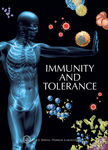|
LXXVIII: Immunity and Tolerance 2013 |
|
|

|
Ruslan Medzhitov, Yasmine Belkaid SYMPOSIUM SYNOPSIS LIST OF PARTICIPANTS CONTENTS OF SYMPOSIUM VOLUME PHOTOGRAPHS PUBLISHED VOLUME PRESENTER INTERVIEWS  |
Immunity and Tolerance
May 29 - June 3, 2013
Symposium Synopsis
Organizers: Michel Nussenzweig, Anne O’Garra, Stephen Smale, David Stewart & Bruce Stillman
The Cold Spring Harbor Symposia on Quantitative Biology bring together scientists from all over the world to present and evaluate new data and ideas in rapidly moving areas of biological research. Each year, a topic is chosen that appears to be at a stage where general and intensive scrutiny and review is needed. There are numerous criteria for selection of topics, including the rate of progress in a given field, how recent research is highlighting connections among fundamental biological mechanisms, and the potential applications of the new discoveries to human health and disease. Cold Spring Harbor Laboratory selected the theme of Immunity and Tolerance for the historic 78th Symposium in the series. Previous Symposia that have included significant aspects of immunology have occurred on a roughly 10-year cycle, notably but not limited to Antibodies (1967), Origins of Lymphocyte Diversity (1976), Immunological Recognition (1989), and Signaling and Gene Expression in the Immune System (1999).
The immune system evolved to defend individuals against invading pathogens. However, because exaggerated responses to pathogens or commensals can result in damage to the host, mechanisms of immune regulation have developed to inhibit pathology. These mechanisms also inhibit the immune response to selfantigens and so prevent autoimmune disease. Advanced molecular techniques to perturb gene function in experimental mouse models as well as the identification of genetic mutations in human diseases have provided conclusive evidence toward the role of particular molecules and pathways in vivo, in the development and function of the immune system. The genomic era has contributed to significant advances in our understanding ofmechanisms underlying human disease. During the past decades, immunology research was revolutionized by the rapid identification of molecules, pathways, and cells contributing to innate and adaptive immune responses. In addition, this has furthered our understanding of how failures in immunoregulation during immune responses to pathogens, commensals, or self can result in disease and inaugurated the era of biologics as therapeutic agents. Major advances have been made toward our understanding of the regulatory mechanisms in place to prevent inflammatory and autoimmune diseases. In turn, immunologists and clinicians are attempting to exploit this knowledge to harness these pathways in order to eradicate cancer.
The decision to focus the 2013 Symposium on immunity and tolerance reflected the enormous research progress achieved in recent years. The plan was to provide a broad synthesis of the current state of the field, setting the stage for future discoveries and application and to introduce research topics on mechanisms of human disease, extending beyond the more basic molecular research of past years. The Symposium spanned a broad range of areas of investigation, including molecular mechanisms of B and T lymphocyte development in experimental models, at levels ranging from the single cell to the entire organism and from single genes to genomes. There was a good cover of development and function of innate cells, including myeloid cells, NK (natural killer) cells, and a more recently defined innate lymphoid cell (ILC) that resembles T cells in producing effector molecules such as cytokines but lacks an antigen receptor and has an early role like other innate cells in the immune response. In keeping with Cold Spring Harbor tradition, the program included talks on in-depth molecular mechanisms of transcriptional regulation of key immune pathways in innate and adaptive cells of the immune system. Emerging areas of research were also covered, including how metabolic pathways affect immune responses and, conversely, how immune cells may affect cell and tissue physiology outside of the immune response and how commensal bacteria can affect the immune response contributing to protection against pathogens or disease. Introduced were diverse immune mechanisms underlying the events leading to chronic infection or immune control in HIV and tuberculosis, in addition to mechanisms underlying autoimmune diseases that have promise to lead to new clinical therapies.
In arranging the Symposium, immunologists interacted with Cold Spring Harbor organizers to introduce more on the mechanisms of the immune response underlying human disease. Opening night speakers included James Allison, Jean-Laurent Casanova, Fiona Powrie, and Anjana Rao. Of special excitement with respect to human disease was the progress that Jim Allison presented on “Immune Checkpoint Blockade in Cancer Therapy,” having advanced this area by combining findings from experimental models and human disease to expedite treatments of cancer. Hidde Ploegh delivered a compelling Dorcas Cummings lecture on “The Logic of Your Immune System” to Laboratory friends, neighbors, and Symposium participants in advance of the annual dinner parties.
This Symposium was attended by almost 385 scientists from more than 20 countries, and the program included 67 invited presentations and 200 poster presentations. To disseminate the latest results and discussion of the Symposium to a wider audience, attendees were able to share many of the Symposium talks with their colleagues, whom were unable to attend, using the Leading Strand video archive, and interviews by Laurie Dempsey, Karin Dumstrel, John Inglis, Richard Sever, Liz Thompson, and Jan Witkowski with leading experts in the field were arranged during the Symposium and distributed as free video from the Cold Spring Harbor Symposium interviews web site.
We thank Val Pakaluk, Mary Smith, Ed Campodonico, and his staff, in the Meetings & Courses Program for their assistance in organizing and running the Symposium, and John Inglis and his staff at Cold Spring Harbor Laboratory Press, particularly Jan Argentine, Inez Sialiano, and Rena Springer. Funds to support this meeting were obtained from the National Institute of Allergy and Infectious Diseases, a branch of the National Institutes of Health. Financial support from the corporate sponsors of our meetings program is essential for these Symposia to remain a success and we are most grateful for their continued support.
Michel Nussenzweig
Anne O’Garra
Stephen Smale
David Stewart
Bruce Stillman
Search images: